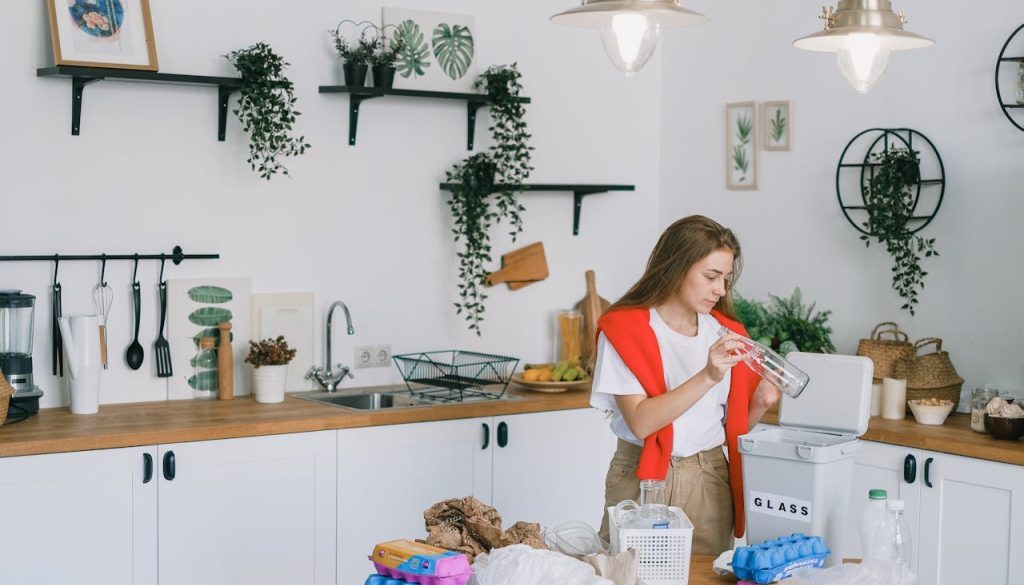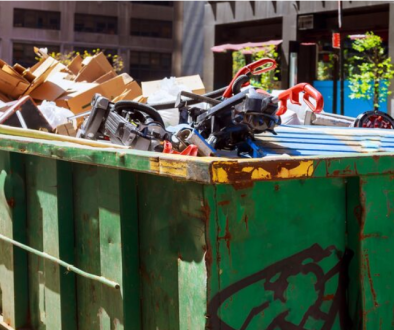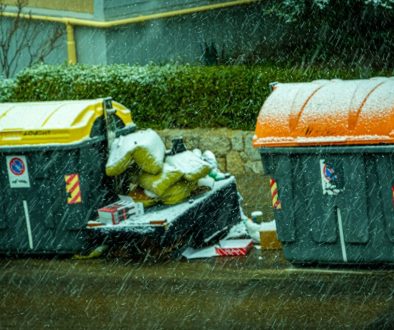Starting to recycle at home might feel like a big task at first, but once you get going, it can become part of your everyday routine. It’s all about getting the basics right, setting up the right space, and building habits. Over time, you’ll notice how much less waste ends up in your general bin, which can make a real difference for your community. It can also save space, keep your home tidier, and make disposal jobs far simpler, especially during clear-outs or renovations.
If you’re in Frodsham and planning on making bigger changes or tackling a bulk clean-up, it often makes sense to hire a skip to manage the overflow of rubbish. A simple skip can give you room to sort through everything without rushing, and make sure you don’t end up mixing waste types. But before getting to that stage, it helps to know what you’re dealing with and what to look out for.
Assessing Your Rubbish
Before you can recycle properly, you need to understand what’s ending up in your bins. You’d be surprised how many items can be reused or recycled that often just get tossed into the general waste pile. Taking a bit of time to go through what your household throws away in a week is a great first step.
You might notice items piling up from different areas of your home. Here’s a general way to start sorting them:
– Recyclables: Paper, cardboard, glass bottles, jars, plastic containers (check the labels), tins and cans
– Non-recyclables: Soft plastics, greasy pizza boxes, broken ceramics, certain foam food trays
– Hazardous waste: Old batteries, leftover paints, cleaning chemicals, broken electronics
Once you’ve identified what types of rubbish you’re dealing with, it’s time to set up a sorting system. Not everyone has loads of space, so start simple:
– Put clearly labelled bins or baskets in easily accessed spots, like the kitchen or utility room
– Use a separate container for batteries, old light bulbs, or anything that needs a special drop-off location
– Keep a small box near the front door for any electronics or random items you mean to deal with later
Even a small system can make a big difference. Having separate bins will also help avoid confusion and reduce sorting time on bin day. In the long run, knowing exactly where everything goes can save you time, free up storage space, and make it easier if you decide to hire a skip when tackling a bigger job.
Essential Tools For Effective Recycling
Once you’ve got your categories sorted, it pays to have the right tools to keep things organised. Don’t worry about buying anything expensive to get started. Most homes already have things that can be repurposed to fit the job.
Here are a few simple tools that help make home recycling run smoothly:
– Stackable containers: These work well if you’re short on space. Stack them vertically to keep paper, plastics, and cans in their own place
– Clear plastic bins: It’s easier to see when something’s full and what’s inside. Use sticky labels to keep them clear
– Pop-up waste bags or laundry hampers: Useful for things like cardboard or bottles that don’t fit neatly into small bins
– Bag clips and baskets: Keep these nearby to collect soft plastics or plastic film until you can take them out separately
Labelling your bins is worth the effort. It helps everyone in the house understand what’s what. You can even colour-code the containers to make it more obvious for kids or guests. Put small notices near the bins for tricky items, or a simple list of things to leave out. This avoids mix-ups and keeps your system running smoothly every day.
It’s also handy to have something that helps compress your waste, especially if you’re dealing with bulkier recyclables. A can crusher or just a solid boot (for flattening cardboard) can make a big impact. You’ll save space and prevent bins from overflowing too fast.
Now that things are organised, the next step is turning this into a habit. Recycling works best when it becomes part of your weekly rhythm.
Creating A Routine That Sticks
Once you’ve got your bins and tools in place, the trick is making recycling part of your regular habits. The easier it is to do, the more likely it’ll become second nature for everyone at home. Think of it like brushing your teeth — the routine is what keeps things running smoothly without much thought.
Start by tying recycling to tasks you already do. For example, sort your waste right after dinner clean-up, or flatten boxes after unpacking groceries. Build it into your weekly rhythm, like setting aside 15 minutes on the weekend for a quick house-wide scan to collect recyclables. The idea is to handle waste as it happens rather than letting it pile up.
Getting everyone in the house involved also helps loads. Kids can be given small jobs, like rinsing out jars or checking if certain plastics are recyclable. You could even turn it into a fun challenge to see who fills their bin with the right waste types the fastest.
If sorting gets skipped or bins end up overflowing, it’s usually because the routine feels like extra work. Simplify things where you can:
– Keep the main bins in high-traffic areas like the kitchen or hallway
– Use reminders like sticky notes above the bin lid for tricky items
– Schedule bin nights into family calendars or digital reminders
– Set a rough routine such as sorting recyclables every Thursday, with collection every other Monday
Once the routine’s in place, make time every month to check if it still works. Some items may have changed, or maybe you realise you need a bigger container for cardboard. Small tweaks go a long way in keeping everything manageable.
When It’s Time To Hire A Skip
Even with a solid weekly system, some moments call for a bit more help. Times like these are when hiring a skip in Frodsham can really make a difference. You’re not dealing with regular household waste anymore. Instead, it’s the kind of load that can quickly outgrow your wheelie bins.
Here are a few common situations where having a skip is a smart move:
1. Deep cleans: Whether it’s yearly spring cleaning or just long-overdue decluttering, a skip gives you the breathing room to sort items properly without creating heaps in your front room
2. Renovation work: Redoing a bathroom or pulling up old flooring produces a surprising amount of waste. A skip keeps it all in one place and saves multiple trips to the tip
3. Garden clearance: Cutting back hedges, removing decking, or clearing an old shed can leave behind bulky waste. A skip makes the job faster and neater
4. Moving house: Many people clear out old furniture, broken appliances, and years of forgotten bits before packing. A skip on the drive makes it super straightforward
Make sure you choose the right skip size for your needs. If you’re not sure, it’s better to go slightly bigger than too small. Going back for a second one ends up being more hassle than you may expect. Try to match your booking to the week of your clean-up to avoid delays, and check with your local council if you’re placing the skip on the road.
Skips can also keep things safer. Instead of navigating round heaps of black bin bags or waiting for separate collections, everything goes into a single space while you work. It speeds up the process and makes the clean-up far less stressful.
Small Changes That Lead to a Greener Home
Getting started with home recycling is about doing what works for you. Start with one room, one habit, or even one type of item, and build from there. Over time, you’ll see real changes. Your general bin will fill up less often, your cupboards will be tidier, and dealing with rubbish won’t feel like such a chore.
You’re not only creating a cleaner living space. You’re also helping reduce what goes into landfill and making better use of the resources you already have. It all adds up the longer you stick with it.
Bigger jobs like a house move or seasonal clean-up are great opportunities to get everything sorted once and for all. Bringing in a skip keeps the process from getting overwhelming. You can take your time, clear space safely, and stay focused.
When recycling becomes part of your daily rhythm, it feels less like extra effort and more like a regular habit. And that’s where the real change begins.
Need help clearing out leftover waste from your latest project? Whether you’re sorting through garden rubble or handling unwanted materials from around the house, hiring a skip can make the process easier. To keep things tidy and stress-free, hire a skip in Frodsham with Enviro Skip Hire and let us take care of the heavy lifting.




